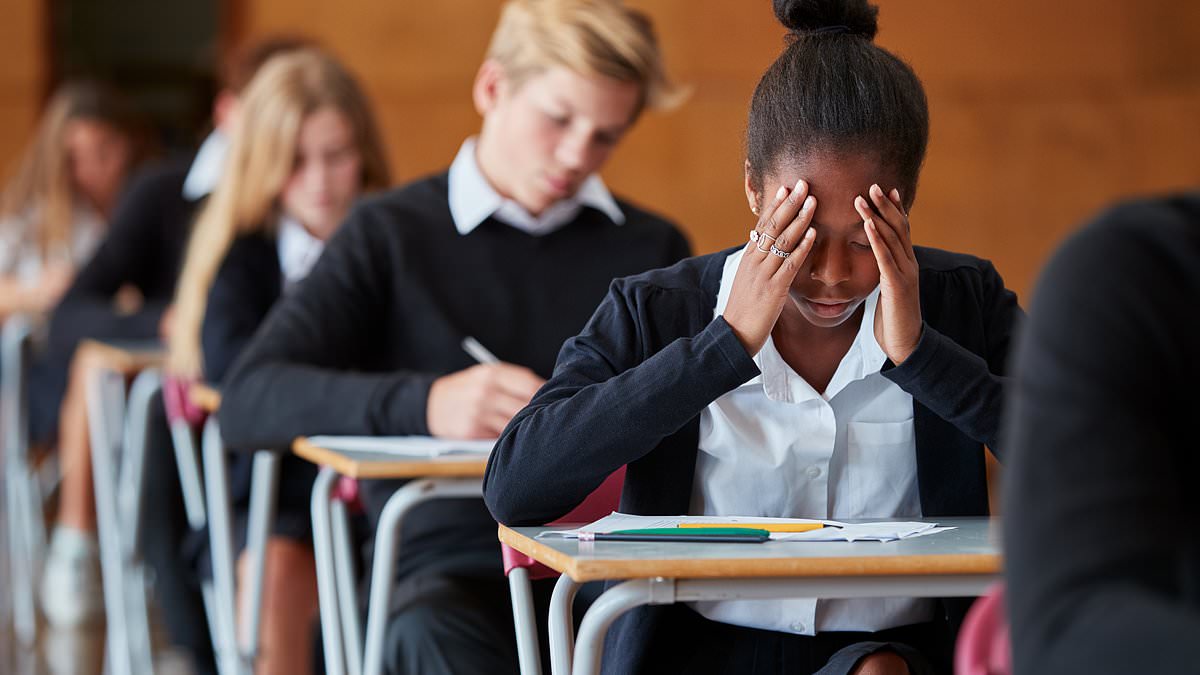The number of pupils being given extra time to do the GCSE and A-level exams because of special needs has risen by more than 42 per cent over four years.
Department for Education (DfE) data shows 365,915 pupils were granted 25 per cent more time than other candidates to complete their exam papers in 2023 – up from 256,710 in 2019.
It means that more than one in four of all pupils sitting the exams last year received extra time.
The figures come as students anxiously await their GCSE results, which will be revealed across the country on Thursday.
At the weekend, experts said officials may be in favour of ‘feel good results’ this year, which means there could be a rise in top grades.
When broken down by school type, the statistics show that a larger proportion of private school pupils were granted extra time last year compared with those from comprehensives.
Only 24 per cent of pupils at comprehensives got extra time, compared with 39 per cent from private schools.
Private schools are known to be better than their state counterparts at navigating the system to give their pupils the best chance.
The sharp rise in extra time granted will raise fears that some pushy parents may be ‘gaming the system’ to get extra time for children who may not have what would be traditionally thought of as a learning difficulty.
Extra time is granted as an ‘access arrangement’ to pupils who have learning difficulties or disabilities.
Eligible pupils must either have an Education, Health and Care Plan (EHCP) confirming their condition, or must score low in a specially-designed test which includes speed of writing and reading and cognitive processing.
Iain Mansfield, head of education at the Policy Exchange think-tank, said: ‘If exams are to command confidence, it’s important that they are genuinely a level playing field.
‘The Government needs to be looking at why these numbers have shot up.’ Other special considerations granted every year include ‘practical assistants’ – people to help, and scribes – people to write on behalf of the student.
In total, the data shows the number granted has risen from 404,600 in 2019 to 556,435 in 2023 – a rise of 38 per cent.
Some pupils may have been granted several different considerations at the same time, so the actual number of pupils will be lower for each year.
Pupils with well-known conditions including dyslexia would be eligible to apply for extra time.
But according to exam board documents, those with ‘social, emotional and mental health needs’ can also apply.
It comes following a rise in the diagnosis of children with special needs in the UK.
Last year, UCL research found the proportion of boys aged 10 to 16 diagnosed with Attention deficit hyperactivity disorder (ADHD) had more than doubled between 2000 and 2018.
Extra time in exams can benefit pupils especially in those subjects where many people do not finish papers, such as maths.
